Insulin
How to submit an article:
- Registered users can submit any published journal article that has a unique DOI (Digital Object Identifier) name or link to Research Hub.
- For example, you can paste the full DOI link:
https://doi.org/10.1109/5.771073or just the DOI name:10.1109/5.771073into the field above and click submit. - The person who is first to submit a valid article to Research Hub will forever be credited for it, and every article submission earns you +6 Research Points.
Related Topics
Published research studies are articles that present the findings of original research that has undergone a peer-review process and has been made publicly available in scholarly journals, books or other media.
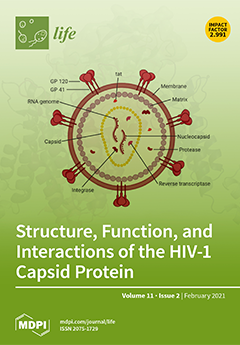
Therapeutic Potential of Pomegranate Extract for Women’s Reproductive Health and Breast Cancer
2024 Oct 03 Life Jang JY, Kim D, Im E, Kim ND
Review Article PCOS Breast Cancer PomegranatePomegranate extract could potentially benefit women's reproductive health, enhance fertility, regulate menstrual cycles, support pregnancy, and help treat polycystic ovary syndrome.
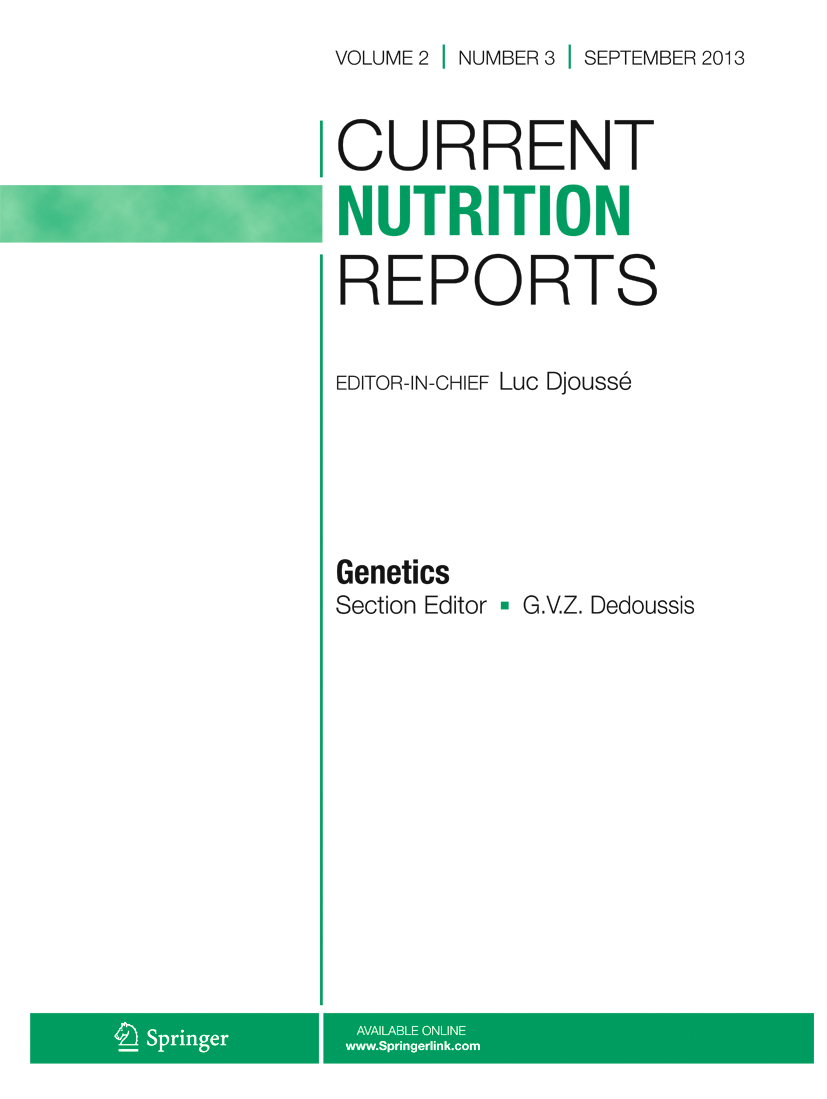
Ziziphus jujuba (Jujube) in Metabolic Syndrome: From Traditional Medicine to Scientific Validation
2024 Oct 01 Current Nutrition Reports Ghasemzadeh Rahbardar M, Fazeli Kakhki H, Hosseinzadeh H
Review Article Obesity Type 2 Diabetes Metabolic Syndrome High Blood Pressure JujubeZiziphus jujuba and its main components, lupeol and betulinic acid, show promise in treating complications of metabolic syndrome, including diabetes, obesity, and hypertension.
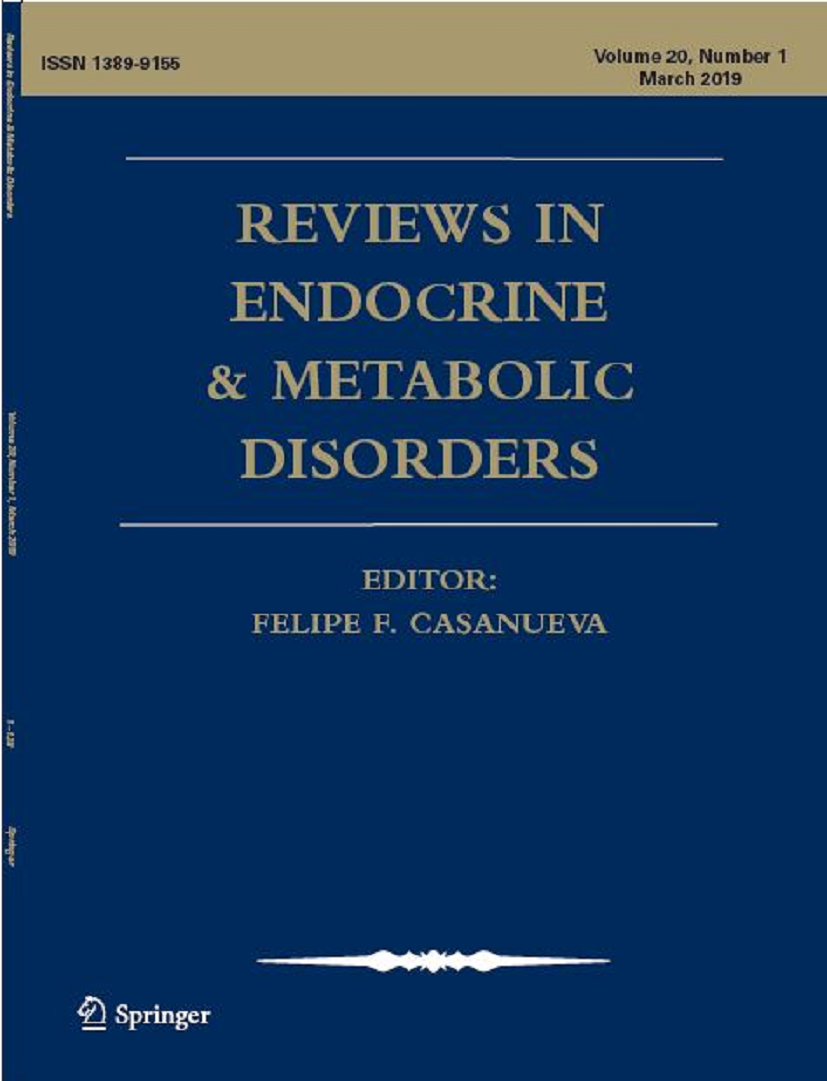
Circadian alignment of food intake and glycaemic control by time-restricted eating: A systematic review and meta-analysis
2023 Nov 22 Reviews in Endocrine and Metabolic Disorders Rovira-Llopis S, Luna-Marco C, Perea-Galera L, Bañuls C, Morillas C, Victor VM
Time-restricted eating (TRE) demonstrated no significant effect on fasting glucose overall, but it did reduce HbA1c levels and fasting insulin, with a tendency to decrease HOMA-IR. The timing of food intake was identified as a crucial factor, with early TRE (eTRE) significantly reducing fasting glucose levels in subjects with overweight or obesity.
Systematic Review Meta-Analysis Intermittent Fasting Circadian Rhythm Blood Sugar Glycaemic Control
Effects of an Unripe Avocado Extract on Glycaemic Control in Individuals with Obesity: A Double-Blinded, Parallel, Randomised Clinical Trial
2023 Nov 17 Nutrients Zhao L, Ingram DK, Gumpricht E, De Paoli T, Teong XT, Liu B, et al.
Randomised Controlled Trial Glucose Blood Sugar AvocadoConsumption of unripe avocado extract in the diet may lower postprandial insulin levels in overweight adults with previously elevated insulin levels.
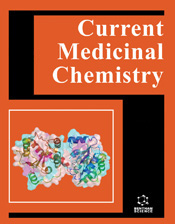
The Effects of Apple Cider Vinegar on Cardiometabolic Risk Factors: A Systematic Review and Meta-analysis of Clinical Trials
2023 Oct 11 Current Medicinal Chemistry Dadkhah Tehrani S, Keshani M, Rouhani MH, Moallem SA, Bagherniya M, Sahebkar A
Systematic Review Meta-Analysis Apple Cider Vinegar Blood Sugar Cholesterol HbA1CConsumption of apple cider vinegar significantly improves certain risk factors for cardiometabolic syndrome, notably fasting blood glucose, glycosylated hemoglobin, and total cholesterol.
Research insights are moderated by the Research Hub team and offer an at-a-glance overview of interesting research findings.

2024 Life
Pomegranate extract could potentially benefit women's reproductive health, enhance fertility, regulate menstrual cycles, support pregnancy, and help treat polycystic ovary syndrome.
Review Article Breast Cancer PCOS Pomegranate
Therapeutic Potential of Pomegranate Extract for Women’s Reproductive Health and Breast Cancer
Jang JY, Kim D, Im E, Kim ND

2024 Current Nutrition Reports
Ziziphus jujuba and its main components, lupeol and betulinic acid, show promise in treating complications of metabolic syndrome, including diabetes, obesity, and hypertension.
Review Article High Blood Pressure Jujube Metabolic Syndrome Obesity Type 2 Diabetes
Ziziphus jujuba (Jujube) in Metabolic Syndrome: From Traditional Medicine to Scientific Validation
Ghasemzadeh Rahbardar M, Fazeli Kakhki H, Hosseinzadeh H

2023 Nutrients
Consumption of unripe avocado extract in the diet may lower postprandial insulin levels in overweight adults with previously elevated insulin levels.
Randomised Controlled Trial Avocado Blood Sugar Glucose
Effects of an Unripe Avocado Extract on Glycaemic Control in Individuals with Obesity: A Double-Blinded, Parallel, Randomised Clinical Trial
Zhao L, Ingram DK, Gumpricht E, De Paoli T, Teong XT, Liu B, et al.

2023 Current Medicinal Chemistry
Consumption of apple cider vinegar significantly improves certain risk factors for cardiometabolic syndrome, notably fasting blood glucose, glycosylated hemoglobin, and total cholesterol.
Systematic Review Apple Cider Vinegar Blood Sugar Cholesterol HbA1C
The Effects of Apple Cider Vinegar on Cardiometabolic Risk Factors:
A Systematic Review and Meta-analysis of Clinical Trials
Dadkhah Tehrani S, Keshani M, Rouhani MH, Moallem SA, Bagherniya M, Sahebkar A
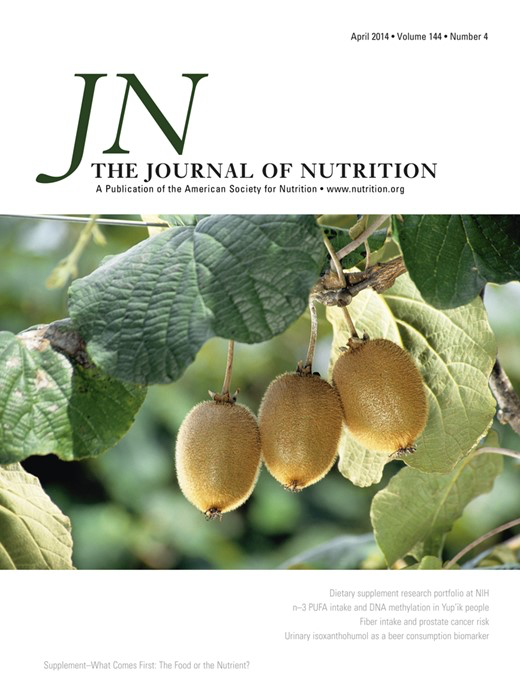
2023 The Journal of Nutrition
Avocado consumption is linked to better glucose regulation, with metabolomic biomarkers of avocado intake showing even stronger associations with lower glycemia.
Cohort Study Blood Sugar
Associations between Metabolomic Biomarkers of Avocado Intake and Glycemia in the Multi-Ethnic Study of Atherosclerosis
Wood AC, Goodarzi MO, Senn MK, Gadgil MD, Graca G, Allison MA, et al.
Review Articles
Review articles summarise and critically evaluate the current state of research on a specific topic or field by synthesising multiple primary research studies.

Therapeutic Potential of Pomegranate Extract for Women’s Reproductive Health and Breast Cancer
2024 Oct 03 Life Jang JY, Kim D, Im E, Kim ND
Review Article PCOS Breast Cancer PomegranatePomegranate extract could potentially benefit women's reproductive health, enhance fertility, regulate menstrual cycles, support pregnancy, and help treat polycystic ovary syndrome.

Ziziphus jujuba (Jujube) in Metabolic Syndrome: From Traditional Medicine to Scientific Validation
2024 Oct 01 Current Nutrition Reports Ghasemzadeh Rahbardar M, Fazeli Kakhki H, Hosseinzadeh H
Review Article Obesity Type 2 Diabetes Metabolic Syndrome High Blood Pressure JujubeZiziphus jujuba and its main components, lupeol and betulinic acid, show promise in treating complications of metabolic syndrome, including diabetes, obesity, and hypertension.

Circadian alignment of food intake and glycaemic control by time-restricted eating: A systematic review and meta-analysis
2023 Nov 22 Reviews in Endocrine and Metabolic Disorders Rovira-Llopis S, Luna-Marco C, Perea-Galera L, Bañuls C, Morillas C, Victor VM
Time-restricted eating (TRE) demonstrated no significant effect on fasting glucose overall, but it did reduce HbA1c levels and fasting insulin, with a tendency to decrease HOMA-IR. The timing of food intake was identified as a crucial factor, with early TRE (eTRE) significantly reducing fasting glucose levels in subjects with overweight or obesity.
Systematic Review Meta-Analysis Intermittent Fasting Circadian Rhythm Blood Sugar Glycaemic Control
The Effects of Apple Cider Vinegar on Cardiometabolic Risk Factors: A Systematic Review and Meta-analysis of Clinical Trials
2023 Oct 11 Current Medicinal Chemistry Dadkhah Tehrani S, Keshani M, Rouhani MH, Moallem SA, Bagherniya M, Sahebkar A
Systematic Review Meta-Analysis Apple Cider Vinegar Blood Sugar Cholesterol HbA1CConsumption of apple cider vinegar significantly improves certain risk factors for cardiometabolic syndrome, notably fasting blood glucose, glycosylated hemoglobin, and total cholesterol.

Acupuncture combined with metformin versus metformin alone to improve pregnancy rate in polycystic ovary syndrome: A systematic review and meta-analysis
2022 Aug 29 Frontiers in Endocrinology Chen X, Lan Y, Yang L, Liu Y, Li H, Zhu X, et al.
Systematic Review Meta-Analysis PCOS PregnancyPCOS patients suggests that combining acupuncture with metformin might enhance pregnancy and ovulation rates, as well as improve insulin resistance.
Clinical Trials
Clinical trials are research studies that involve people and are conducted to evaluate the safety and efficacy of new treatments or interventions, such as drugs, medical devices, or behavioural therapies.

Effects of an Unripe Avocado Extract on Glycaemic Control in Individuals with Obesity: A Double-Blinded, Parallel, Randomised Clinical Trial
2023 Nov 17 Nutrients Zhao L, Ingram DK, Gumpricht E, De Paoli T, Teong XT, Liu B, et al.
Randomised Controlled Trial Glucose Blood Sugar AvocadoConsumption of unripe avocado extract in the diet may lower postprandial insulin levels in overweight adults with previously elevated insulin levels.

The effects of propolis supplementation on high‐sensitivity C‐reactive protein, testosterone hormone, and metabolic profile in women with polycystic ovary syndrome: A randomized, triple‐blinded, placebo‐controlled clinical trial
2023 Sep 02 Phytotherapy Research Abbasi E, Bagherniya M, Soleimani D, Ghasemi‐Tehrani H, Abbaspour M, Clark CCT, et al.
Randomised Controlled TrialPropolis supplementation positively influences metabolic factors, testosterone levels, lipid profile, and body measurements in women suffering from polycystic ovarian syndrome.

A comparison of the effects of cinnamon, ginger, and metformin consumption on metabolic health, anthropometric indices, and sexual hormone levels in women with poly cystic ovary syndrome: A randomized double-blinded placebo-controlled clinical trial
2022 Nov 29 Frontiers in Nutrition Dastgheib M, Barati-Boldaji R, Bahrampour N, Taheri R, Borghei M, Amooee S, et al.
Randomised Controlled Trial Cinnamon Testosterone Metabolic Syndrome FSH Ginger PCOS Insulin Resistance Metformin Ceylon Cinnamon LHIn women with polycystic ovary syndrome, cinnamon reduced insulin resistance and testosterone levels similar to metformin, and ginger decreased follicle-stimulating and luteinizing hormones.

Effects of crocin supplementation on inflammatory markers, lipid profiles, insulin and cardioprotective indices in women with PCOS: A randomized, double‐blind, placebo‐controlled trial
2022 Apr 26 Phytotherapy Research Rahimi G, Shams S, Aslani MR
Crocin intervention (15 mg, twice daily) significantly increased high-density lipoprotein cholesterol, suppressed the increase in low-density lipoprotein cholesterol, triglycerides, and total cholesterol levels, and improved insulin and cardioprotective indices in women with PCOS. Additionally, crocin demonstrated protective effects against the increase in inflammatory markers (IL-6 and TNF-α) observed in the placebo group. The findings suggest that crocin supplementation may be beneficial in the therapeutic management of PCOS.
Clinical Study Randomised Controlled Trial PCOS Crocin
The effect of pomegranate extract on anthropometric indices, serum lipids, glycemic indicators, and blood pressure in patients with nonalcoholic fatty liver disease: A randomized double‐blind clinical trial
2021 Sep 08 Phytotherapy Research Goodarzi R, Jafarirad S, Mohammadtaghvaei N, Dastoorpoor M, Alavinejad P
Randomised Controlled Trial Obesity Pomegranate HDL-C Blood Sugar Triglyceride Insulin Resistance Cholesterol Diastolic Blood PressurePomegranate extract supplement shows potential in improving glycemic indicators, serum lipids, anthropometrics, and blood pressure in patients with nonalcoholic fatty liver disease.
Study Protocols
Published study protocols are detailed plans that outline the objectives, methodology, statistical analyses, and organisation of a research study that have been made publicly available for others to review and use as a reference.
Presentation Slides

Review Article
Pomegranate extract could potentially benefit women's reproductive health, enhance fertility, regulate menstrual cycles, support pregnancy, and help treat polycystic ovary syndrome.
Jang JY, Kim D, Im E, Kim ND

Review Article
Ziziphus jujuba and its main components, lupeol and betulinic acid, show promise in treating complications of metabolic syndrome, including diabetes, obesity, and hypertension.
Ghasemzadeh Rahbardar M, Fazeli Kakhki H, Hosseinzadeh H

Randomised Controlled Trial
Consumption of unripe avocado extract in the diet may lower postprandial insulin levels in overweight adults with previously elevated insulin levels.
Zhao L, Ingram DK, Gumpricht E, De Paoli T, Teong XT, Liu B, Mori TA, Heilbronn LK, Roth GS

Systematic Review
Consumption of apple cider vinegar significantly improves certain risk factors for cardiometabolic syndrome, notably fasting blood glucose, glycosylated hemoglobin, and total cholesterol.
Dadkhah Tehrani S, Keshani M, Rouhani MH, Moallem SA, Bagherniya M, Sahebkar A

Cohort Study
Avocado consumption is linked to better glucose regulation, with metabolomic biomarkers of avocado intake showing even stronger associations with lower glycemia.
Wood AC, Goodarzi MO, Senn MK, Gadgil MD, Graca G, Allison MA, Tzoulaki I, Mi MY, Greenland P, Ebbels T, Elliott P, Tracy RP, Herrington DM, Rotter JI

Experimental Study
Theabrownin from dark tea can potentially reverse insulin resistance and regulate glycolipid metabolism, with longer fermented samples showing greater effects.
Liu J, Wang X, Zhu Y, Deng H, Huang X, Jayavanth P, Xiao Y, Wu J, Jiao R

Randomised Controlled Trial
Propolis supplementation positively influences metabolic factors, testosterone levels, lipid profile, and body measurements in women suffering from polycystic ovarian syndrome.
Abbasi E, Bagherniya M, Soleimani D, Ghasemi‐Tehrani H, Abbaspour M, Clark CCT, Askari G
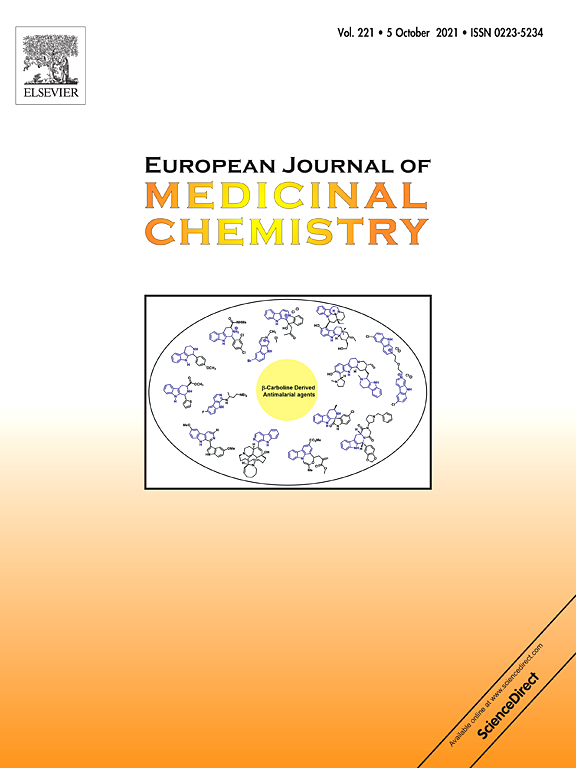
Animal Study
Jin Si Huang Ju tea, a traditional Chinese beverage, contains compounds that potentially reduce lipids, mitigate insulin resistance and reduce liver inflammation in vitro.
Li X, Li R, Wang X, Zhang X, Xiao Z, Wang H, Sun W, Yang H, Yu P, Hu Q, Guo Q, Sun H

Randomised Controlled Trial
In women with polycystic ovary syndrome, cinnamon reduced insulin resistance and testosterone levels similar to metformin, and ginger decreased follicle-stimulating and luteinizing hormones.
Dastgheib M, Barati-Boldaji R, Bahrampour N, Taheri R, Borghei M, Amooee S, Mohammadi-Sartang M, Wong A, Babajafari S, Mazloomi SM
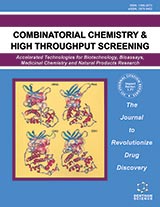
Network Pharmacology
The Chinese medicine formulas Zuo Gui Wan and You Gui Wan have the potential to treat premature ovarian failure through different pharmacological pathways.
Shanshan Mei, Chaoqin Yu, Jie Ding, Wen Cheng

Systematic Review
PCOS patients suggests that combining acupuncture with metformin might enhance pregnancy and ovulation rates, as well as improve insulin resistance.
Chen X, Lan Y, Yang L, Liu Y, Li H, Zhu X, Zhao Y, Long C, Wang M, Xie Q, Li Z, Wu J
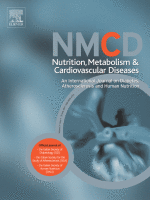
Meta-Analysis
Blueberry and cranberry consumption significantly lowered fasting blood glucose and glycated hemoglobin levels in individuals with diabetes.
Delpino FM, Figueiredo LM, Gonçalves da Silva T, Flores TR

Systematic Review
Consumption of sesame seeds and its products positively influences human glucose metabolism, potentially making it a beneficial addition to glucose-lowering diets.
Sohouli MH, Haghshenas N, Hernández‐Ruiz , Shidfar F

Review Article
The ketogenic diet, by reducing carbohydrate intake, shows potential in weight loss, insulin requirement reduction, and mitigation of inflammatory symptoms in patients with inflammatory arthritis.
Ciaffi J, Mitselman D, Mancarella L, Brusi V, Lisi L, Ruscitti P, Cipriani P, Meliconi R, Giacomelli R, Borghi C, Ursini F

Meta-Analysis
Tea supplements, especially green tea, significantly decrease fasting blood glucose and fasting insulin levels and reduce body weight in women with polycystic ovary syndrome.
Shen W, Pan Y, Jin B, Zhang Z, You T, Qu Y, Han M, Yuan X, Zhang Y

Systematic Review
Cinnamon supplementation may significantly enhance metabolic status in women with polycicstic ovary syndrome, notably improving high-density lipoprotein and insulin sensitivity, and decreasing low-density lipoprotein, triglyceride, and blood glucose levels.
Maleki V, Faghfouri AH, Tabrizi FPF, Moludi J, Saleh-Ghadimi S, Jafari-Vayghan H, Qaisar SA

Review Article
Recent findings suggest that the molecular background to the development of insulin resistance may be related to vitamin D deficiency.
Contreras-Bolívar V, García-Fontana B, García-Fontana C, Muñoz-Torres M

Animal Study
Adzuki beans, when added to a high-fat diet, lessen obesity, improve liver function, enhance insulin sensitivity, and balance gut microbiota.
Zhao Q, Hou D, Fu Y, Xue Y, Guan X, Shen Q

Randomised Controlled Trial
Pomegranate extract supplement shows potential in improving glycemic indicators, serum lipids, anthropometrics, and blood pressure in patients with nonalcoholic fatty liver disease.
Goodarzi R, Jafarirad S, Mohammadtaghvaei N, Dastoorpoor M, Alavinejad P

Systematic Review
D-Limonene, a bioactive compound found in citrus peels, shows potential anticancer activity and is better tolerated in breast cancer patients compared to its derivative perillyl alcohol.
Chebet JJ, Ehiri JE, McClelland DJ, Taren D, Hakim IA

Systematic Review
Apple cider vinegar intake can significantly decrease total cholesterol and fasting plasma glucose levels contributing to better cardiovascular health among adults.
Hadi A, Pourmasoumi M, Najafgholizadeh A, Clark CCT, Esmaillzadeh A

Systematic Review
Acupuncture could improve body mass index, waist-to-hip ratio as well as insulin resistance (HOMA-IR) in patients with PCOS.
Ruqun Zheng, Peng Qing, Mei Han, Jinlong Song, Min Hu, Hongxia Ma, Juan Li
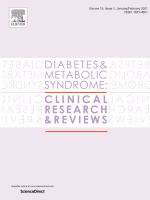
Systematic Review
The supplementary intake of green tea does not significantly affect blood glucose, fasting insulin, hemoglobin A1c, and insulin resistance in patients with type 2 diabetes mellitus.
Asbaghi O, Fouladvand F, Gonzalez MJ, Ashtary-Larky D, Choghakhori R, Abbasnezhad A
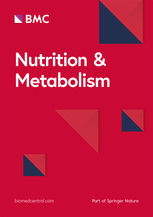
Systematic Review
Green tea supplementation significantly lowers fasting glucose levels but does not significantly affect fasting insulin and haemoglobin A1c values.
Xu R, Bai Y, Yang K, Chen G
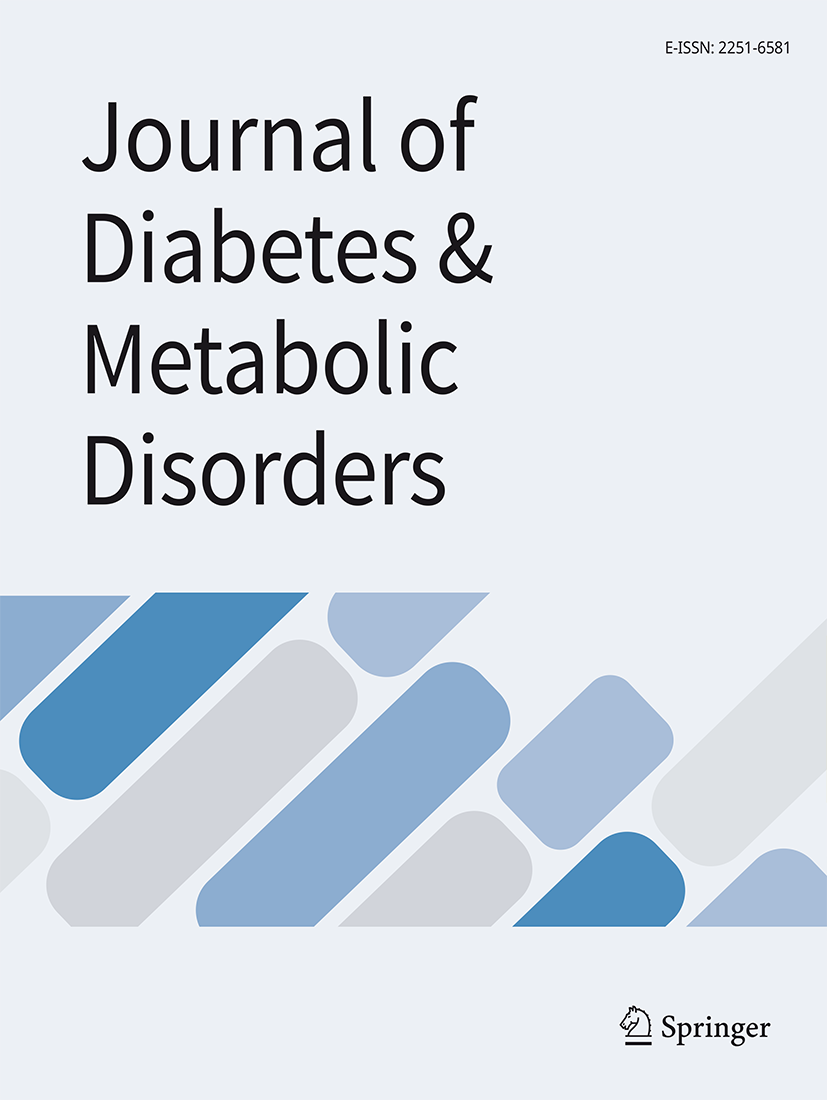
Systematic Review
Green coffee supplementation significantly decreases fasting blood sugar, insulin, and triglycerides while boosting high-density lipoprotein levels.
Morvaridi M, Rayyani E, Jaafari M, Khiabani A, Rahimlou M

Systematic Review
Cinnamon supplementation may help manage metabolic parameters in polycystic ovary syndrome patients by reducing fasting blood sugar, insulin, LDL-C, total cholesterol, and triacylglycerol levels.
Heydarpour F, Hemati N, Hadi A, Moradi S, Mohammadi E, Farzaei MH
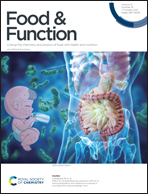
Review Article
Coffee and decaffeinated coffee appear to provide long-term protection against developing type 2 diabetes, potentially due to the influence of chlorogenic acids.
Williamson G
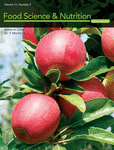
Randomised Controlled Trial
Pomegranate juice can reduce melatonin, increase insulin levels, and improve insulin resistance in individuals with impaired fasting glucose.
Banihani SA, Fashtaky RA, Makahleh SM, El‐Akawi ZJ, Khabour OF, Saadeh NA

Review Article
Cocoa and cocoa products, enriched with polyphenols, have potential health benefits including enhanced vascular function, cancer prevention, and improvement in learning and memory.
E S, Panjikkaran ST, L SC, R RP
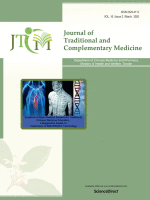
Systematic Review
Coffee consumption, in the long term, improves glucose metabolism but may cause unfavourable acute effects.
Reis CEG, Dórea JG, da Costa THM

Randomised Controlled Trial
Synbiotic pomegranate juice (containing inulin and lactobacillus) can improve insulin resistance, reduce testosterone level, and aid weight loss in women suffering from Polycystic Ovarian Syndrome.
Esmaeilinezhad Z, Babajafari S, Sohrabi Z, Eskandari MH, Amooee S, Barati-Boldaji R

Systematic Review
Berberine's potential similarity to metformin in addressing glycolipid metabolism and insulin sensitivity, and exploring promising combinations involving berberine, metformin, and cyproterone acetate for treating polycystic ovary syndrome with insulin resistance.
Meng-Fei Li, Xiao-Meng Zhou, Xue-Lian Li
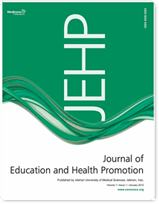
Randomised Controlled Trial
Green tea consumption leads to weight loss and decreased levels of fasting insulin and free testosterone in overweight women with polycystic ovarian syndrome.
Tehrani HG, Allahdadian M, Zarre F, Ranjbar H, Allahdadian F
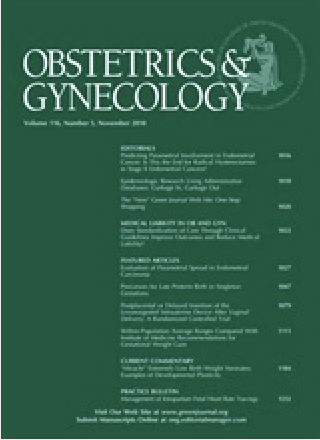
Case Report
Raspberry leaf consumption may decrease insulin requirements in pregnant women with gestational diabetes mellitus.
Cheang KI, Nguyen TT, Karjane NW, Salley KES
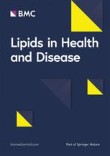
Randomised Controlled Trial
A sardine-enriched diet may have beneficial effects on cardiovascular risk and alters gut microbiota composition in patients with type 2 diabetes.
Balfegó M, Canivell S, Hanzu FA, Sala-Vila A, Martínez-Medina M, Murillo S, Mur T, Ruano EG, Linares F, Porras N, Valladares S, Fontalba M, Roura E, Novials A, Hernández C, Aranda G, Sisó-Almirall A, Rojo-Martínez G, Simó R, Gomis R
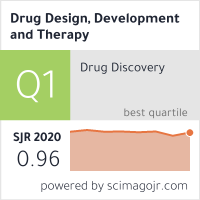
Review Article
A mixture of active polysaccharides from Goji berries have shown multiple pharmacological activities, including anti-aging, antioxidative, anti-fatigue, anticancer, anti-diabetic, anti-viral, hepatoprotective, cardioprotective, neuroprotective, hypolipidemic, radioprotective, anti-osteoporosis, anti-inflammatory, and immunomodulating effects.
Cheng J, Zhou Z, Sheng H, He L, Fan X, He Z, Sun T, Zhang X, Zhao RJ, Gu L, Cao C, Zhou S
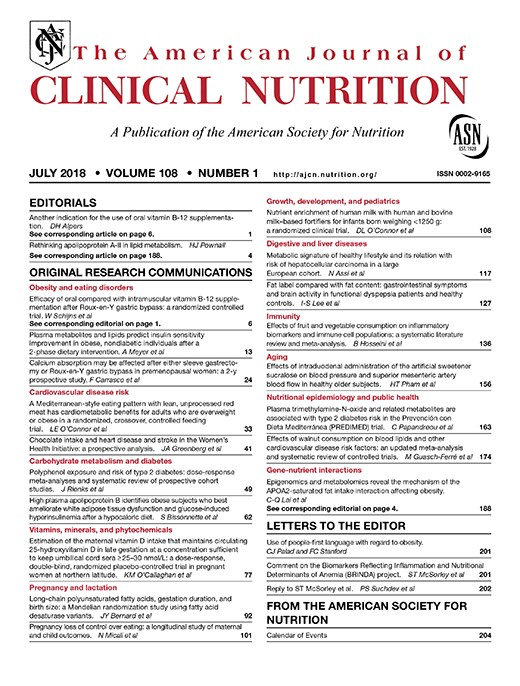
Systematic Review
Regular chocolate or cocoa consumption, rich in flavan-3-ols, has been associated with improved insulin resistance and blood vessel function, suggesting potential cardiovascular benefits.
Hooper L, Kay C, Abdelhamid A, Kroon PA, Cohn JS, Rimm EB, Cassidy A
Executive Summary
Write an executive summary in the form of a blog article on the topic of "Research into Chinese medicine treatment for Insulin" summarising the research below and using language that can be easily understood by patients and avoiding medical jargon using a professional and caring tone of voice.
Write an executive summary in the form of a blog article on the topic of "Researched Chinese medicine treatments for Insulin" summarising the research below in an objective and easy to understand way, and using language that can be easily understood by patients. Group the article into Chinese medicine treatments first, followed by nutrition and other treatments. Avoid using medical jargon and use a professional and caring tone of voice.
Write me a concise but easy to understand executive summary on the topic of "Chinese medicine treatments for Insulin" based on the following research that I will give you. Your summary should be 2 paragraphs long in Australian English spelling and include references to the studies.
A Review Article published in 2024 in the journal Life found that Pomegranate extract could potentially benefit women's reproductive health, enhance fertility, regulate menstrual cycles, support pregnancy, and help treat polycystic ovary syndrome. In establishing the potential benefits of pomegranate extract in women's reproductive health, a wide array of methods was employed. Primarily, these included in vitro studies, animal modeling and certain clinical trials. Analyses of the antioxidant properties of the extract were done to ascertain its effectiveness in reducing oxidative stress and consequently, improving fertility. The influence of pomegranate extract on hormonal imbalances and menstrual regulation was also studied. Discussions on the results emphasized the potential of pomegranate extract in supporting women's reproductive health. The extract was found beneficial in enhancing fertility, regulating menstruation and supporting pregnancy. Further, it could help in polycystic ovary syndrome therapy by improving insulin sensitivity and reducing oxidative damage. Its rich nutrient composition was appreciated for potentially fostering placental development and fetal growth, thus possibly mitigating the risk of early birth. Apart from reproductive health, some studies pointed towards pomegranate extract's potential anticancer properties, primarily against breast cancer.
A Review Article published in 2024 in the journal Current Nutrition Reports found that Ziziphus jujuba and its main components, lupeol and betulinic acid, show promise in treating complications of metabolic syndrome, including diabetes, obesity, and hypertension. The research assessed the properties of Ziziphus jujuba and its main bioactive agents, lupeol and betulinic acid, in relation to metabolic syndrome. Investigations focussed on their potential roles in glucose uptake enhancement, hepatic glucose synthesis reduction, insulin sensitivity improvement, and lipid profile modulation. Studies involved identifying the influence of these substances on key signaling pathways and insulin signaling proteins, as well as evaluating their anti-adipogenic effects and capacity to improve endothelial function. Ziziphus jujuba and its constituents exhibited potential therapeutic benefits for metabolic syndrome by facilitating glucose uptake, reducing glucose synthesis, and improving insulin sensitivity. They also showed potential in moderating lipid synthesis and fat accumulation, demonstrating anti-fatty effects and a capacity to influence adipogenic enzymes and transcription factors. Moreover, these substances demonstrated enhanced endothelial function, reflecting positively on vascular health. These accumulative findings suggest promising potential for Z. jujuba, lupeol, and betulinic acid as natural treatments for metabolic syndrome complications.
A Randomised Controlled Trial published in 2023 in the journal Nutrients found that Consumption of unripe avocado extract in the diet may lower postprandial insulin levels in overweight adults with previously elevated insulin levels. In this study, a double-blinded, randomised controlled trial was performed on 60 non-diabetic adults (with a majority of 47 being women, average age 48 years, BMI 34.0 kg/m). The participants were stratified by sex and randomised into two groups. One group daily consumed an extract from unripe avocado (10 g finely ground, freeze-dried unripe avocado), while the other took a placebo (10 g finely ground cornmeal supplemented with 5% spinach powder) over a period of 12 weeks. The primary outcome measured was the change in glucose area under the curve (AUC) in response to a 75 g oral glucose tolerance test. The results showed no significant differences between both groups in terms of glucose AUC, insulin AUC, or cardiovascular outcomes. However, in a subgroup analysis focusing on participants with above median baseline postprandial insulin levels, there was a notable reduction in insulin AUC in those who consumed the avocado extract compared to the placebo. This suggests that the daily consumption of an unripe avocado extract, enriched in MH, might not significantly impact glucose tolerance or insulin sensitivity in obese non-diabetic adults. Nonetheless, there seems to be a potential benefit of this intervention on postprandial insulin levels in individuals with initially elevated insulin responses.
A Systematic Review published in 2023 in the journal Current Medicinal Chemistry found that Consumption of apple cider vinegar significantly improves certain risk factors for cardiometabolic syndrome, notably fasting blood glucose, glycosylated hemoglobin, and total cholesterol. This study applied a systematic review and meta-analysis of clinical trials found in PubMed, Scopus, and ISI Web of Science databases. In this process, trials evaluating the effects of apple cider vinegar consumption on cardiometabolic syndrome risk factors were sought. In total, 25 clinical trials were included in the study, these trials encompassed 1320 adult participants. The consumed apple cider vinegar led to a general improvement in fasting blood glucose, glycosylated hemoglobin, and total cholesterol. However, for body mass index, insulin resistance, serum insulin, triglycerides, low-density lipoprotein cholesterol, and high-density lipoprotein cholesterol, no significant results were observed. Conducting a subgroup analysis, the study identified a significant decrease in fasting blood glucose, glycosylated hemoglobin, total cholesterol, and triglycerides in diabetic patients. Further, it was observed that the apple cider vinegar significantly reduced fasting blood glucose levels regardless of the duration of administration and also decreased triglycerides concentration when consumed for 12 weeks or more.
A Cohort Study published in 2023 in the journal The Journal of Nutrition found that Avocado consumption is linked to better glucose regulation, with metabolomic biomarkers of avocado intake showing even stronger associations with lower glycemia. The study used baseline data from 6224 multi-ethnic older adults, including self-reported avocado intake, fasting glucose and insulin. Untargeted plasma proton nuclear magnetic resonance contributed to metabolomic features, with data available for a subset of 3438 participants. The researchers then assessed the incidence of type 2 diabetes over approximately an 18-year follow-up period. They conducted a metabolome-wide association study comparing avocado consumers to nonconsumers and examined the features' associations with glycemia, both cross-sectionally with fasting insulin and glucose, and longitudinally with the incidence of type 2 diabetes. The research identified three highly-correlated spectral features associated with avocado intake at metabolome-wide significance levels and grouped into a single biomarker. These features didn't demonstrate any strong associations with overall dietary quality or any of the 47 other food groups, reinforcing their validity as an avocado intake biomarker. While avocado intake had a modest effect on lowering fasting insulin, this effect was not significant when adjusting for participants' body mass index. However, the avocado intake biomarker was noticeably related to lower fasting glucose, lower fasting insulin, and a lower incidence of type 2 diabetes, even after adjusting for BMI. This illustrates the considerable influence of metabolomic insights in determining diet-health relationships and the importance of considering individual metabolic differences for health outcomes.
A Experimental Study published in 2023 in the journal Nutrients found that Theabrownin from dark tea can potentially reverse insulin resistance and regulate glycolipid metabolism, with longer fermented samples showing greater effects. The study focused on TB1 and TB2, theabrownin isolated from dark tea. TB1 was fermented for 7 days whereas TB2 was fermented for 14 days. The research used HepG2 cells for the experiment. Various techniques such as Western blot and real-time PCR experiments were employed to measure the effects of TB on oxidative stress, mitochondrial function, and glycolipid regulation, which are key components of insulin resistance. The results suggest TB can significantly improve oxidative stress conditions by enhancing mitochondrial function. TB unveiled its potential in improving glycogen synthesis and glucose consumption. Furthermore, TB was found to inhibit harmful processes like gluconeogenesis and fatty acid synthesis via the regulation of various enzymes and proteins. The researchers investigated this by focusing on a signaling pathway (IRS-1/PI3K/Akt). Verification of the effects of TB on glycolipid metabolism was done using a PI3K inhibitor, highlighting a positive correlation between PI3K activation and TB's activity. Notably, the experiment showed TB2, which was fermented longer, was more effective in improving insulin resistance.
A Randomised Controlled Trial published in 2023 in the journal Phytotherapy Research found that Propolis supplementation positively influences metabolic factors, testosterone levels, lipid profile, and body measurements in women suffering from polycystic ovarian syndrome. The research was a triple-blind controlled trial constructed to consider the effects of propolis on women with polycystic ovarian syndrome. The participants, who were patients from a gynecology clinic, were randomly divided, following a structured randomization procedure, into two groups. One group was assigned to consume propolis tablets twice daily, amounting to 500 mg of propolis each day, while the other group received placebo tablets that were identical in appearance. This trial took place over the course of 12 weeks in the timeframe of 2021 to 2022. Information was gathered with the help of a demographic questionnaire, blood samples from the participants, and a checklist that helped record the parameters measured. In discussing results, it was noted that several key factors showed significant difference between the propolis and placebo groups. Hip circumference, fasting insulin, insulin resistance, testosterone levels, and low-density to high-density lipoprotein ratios were all seen to drop considerably in the group that received propolis, showing the potential benefits of this natural supplement. Despite an initial decrease in fasting blood sugar levels in the propolis group, the significance of this change was reduced after adjusting for other factors. Conclusively, the evidence points towards notable benefits of propolis, providing support for its usage in managing polycystic ovarian syndrome.
A Animal Study published in 2023 in the journal European Journal of Medicinal Chemistry found that Jin Si Huang Ju tea, a traditional Chinese beverage, contains compounds that potentially reduce lipids, mitigate insulin resistance and reduce liver inflammation in vitro. The researchers identified 14 compounds in the Jinsi Huangju tea using different spectroscopic techniques, 11 of which had not been previously identified in this plant. Two of these compounds, apigenin-7-O-6″-malonylglucoside and luteolin-7-O-6″-malonylglucoside, were synthesized for the first time with a yield of 1.2% over 5 steps. In the findings, the natural compound apigenin-7-O-6″-malonylglucoside was found to inhibit the function of pancreatic lipase, reduce cellular lipid contents, and attenuate insulin resistance when tested in vitro. It was also observed to restore lipid and inflammatory profiles in plasma and the liver, as well as reduce hepatic steatosis in non-alcoholic fatty liver disease (NAFLD) mouse models. Thus, Jinsi Huangju and its active components are strong candidates for the development of drugs or functional foods that could provide a therapeutic strategy for hyperlipidaemia and NAFLD.
A Randomised Controlled Trial published in 2022 in the journal Frontiers in Nutrition found that In women with polycystic ovary syndrome, cinnamon reduced insulin resistance and testosterone levels similar to metformin, and ginger decreased follicle-stimulating and luteinizing hormones. In the methodology of the study, 100 women diagnosed with polycystic ovary syndrome were divided into four groups. Each group received a different treatment: cinnamon, ginger, metformin, or placebo. The dosage for these treatments was 500 mg, three times a day, administered over a period of 8 weeks. The participants' sex hormones, weight revelations, along with glycemic and lipid markers were monitored before and after this period. Several participants were disqualified because of unspecified factors, resulting in a final sample size of 83. In terms of results, all groups saw a decrease in weight and body mass index. The metformin and cinnamon groups specifically had notably decreases in their insulin resistance, meaning that these treatments were effective in improving metabolic health. Additionally, the ginger group experienced a reduction in follicle-stimulating hormone and luteinizing hormone levels unlike the other groups. Testosterone levels were lowered in the metformin and cinnamon groups, but no significant changes in dehydroepiandrosterone were observed in any of the groups. These results indicate the potential use of cinnamon and ginger as alternative treatments in managing polycystic ovary syndrome.
A Network Pharmacology published in 2022 in the journal Combinatorial Chemistry & High Throughput Screening found that The Chinese medicine formulas Zuo Gui Wan and You Gui Wan have the potential to treat premature ovarian failure through different pharmacological pathways. This study used a public database to identify the active ingredients and potential targets of the Zuo Gui Wan and You Gui Wan compounds. These were analyzed in relation to premature ovarian failure (POF) related genes obtained from OMIM and GeneCards. A protein-protein interaction network was established using STRING, and a drug-active ingredient-target gene network was constructed. The study thus identified similarities and differences in potential targets, active ingredients, and enriched pathways between the two compounds. Analyzing the drug-target-pathway network revealed that both compounds contain multiple common active ingredients, as well as unique components, and share several targets in the treatment of POF, showing similar core mechanisms of action. However, each compound also targets some unique pathways, which indicates their differential approaches to POF treatment.
A Systematic Review published in 2022 in the journal Frontiers in Endocrinology found that PCOS patients suggests that combining acupuncture with metformin might enhance pregnancy and ovulation rates, as well as improve insulin resistance. The study initially screened 330 relevant articles, eventually including nine randomized controlled trials (RCTs) that met the inclusion criteria. These trials encompassed 1,159 patients with PCOS who underwent acupuncture or acupuncture combined with metformin treatment. Using the GRADE method, a "Summary of Findings" table was employed to evaluate the quality of evidence for various outcome measures. The main results indicated that acupuncture combined with metformin exhibited superiority over metformin alone in terms of pregnancy rate, ovulation rate, and HOMA-IR (insulin resistance). Subgroup analysis highlighted that diagnostic criteria and random methods contributed to heterogeneity in results. However, the evidence's quality was predominantly low or very low due to study limitations, inconsistencies, and imprecisions. The intervention measures, such as acupuncture methods and treatment parameters, varied substantially among studies. Challenges in contacting original authors and incomplete information posed further limitations. The study suggested potential improvements in pregnancy rate, ovulation rate, and HOMA-IR with acupuncture combined with metformin, but these findings were subject to uncertainties related to diagnostic criteria and overall evidence quality. Consequently, the conclusive efficacy of acupuncture combined with metformin for treating PCOS remains uncertain due to the dearth of high-quality research. The study called for well-designed and well-executed RCTs to address this question under standardized diagnostic criteria and treatment protocols for acupuncture and metformin.
A Meta-Analysis published in 2022 in the journal Nutrition, Metabolism and Cardiovascular Diseases found that Blueberry and cranberry consumption significantly lowered fasting blood glucose and glycated hemoglobin levels in individuals with diabetes. The research methodology involved a systematic literature review and meta-analysis using publications sourced from seven different databases (PubMed, LILACS, Scielo, Scopus, Web of Science, Cochrane, and Embase) up until May 2021. The researchers included randomized clinical trials where the effects of blueberry or cranberry on parameters linked to type 2 diabetes such as fasting blood glucose, insulin resistance, and glycated hemoglobin were compared. The quality of these studies was evaluated using the Cochrane scale while the Egger test was utilized to assess publication bias and the meta-regression evaluated the estimated effect sizes with potential moderator variables. Following an initial identification of 2034 studies, 39 full-text studies were read, out of which 22 met the criteria to be included in the final meta-analysis. The findings showed that individuals with diabetes experienced significant reductions in fasting blood glucose and glycated hemoglobin readings following the consumption of blueberries or cranberries. However, no significant effects were seen on insulin resistance. While the results were not universally significant when it came to the general population, an exception was found in the sensitivity analysis for fasting blood glucose.
A Systematic Review published in 2022 in the journal Phytotherapy Research found that Consumption of sesame seeds and its products positively influences human glucose metabolism, potentially making it a beneficial addition to glucose-lowering diets. The methodology involved conducting a systematic review and meta-analysis on the effect of sesame seeds consumption on blood glucose and insulin resistance in adults. The researchers gathered data from recognized academic resources like PubMed/MEDLINE, SCOPUS, Web of Science, Google Scholar, and EMBASE, which included controlled clinical trials up until February 2021. The sesame products in these trials ranged from sesame oil, sesamin, and tahini, with the intervention period lasting from 45 days to 9 weeks. The results illustrate that the intake of sesame and its products significantly improved fasting blood glucose and Hemoglobin A1c levels. Nonetheless, the results regarding fasting serum insulin and the homeostatic model assessment for insulin resistance were not found to have any significant relation. Hence, the consumption of sesame might be a beneficial supplement for managing glucose levels in humans.
A Review Article published in 2021 in the journal Frontiers in Medicine found that The ketogenic diet, by reducing carbohydrate intake, shows potential in weight loss, insulin requirement reduction, and mitigation of inflammatory symptoms in patients with inflammatory arthritis. The ketogenic diet operates on the principle of substantially limiting carbohydrate consumption with a daily calorie percentage between 5-10%, facilitating a metabolic switch towards the use of ketone bodies. Studies indicate promise in a variety of applications including weight loss, insulin requirement minimization in diabetes, cancer protocol supplementation, neurological treatment, and control optimization for metabolic and cardiovascular diseases. Although literature on the anti-inflammatory properties of the ketogenic diet on rheumatic diseases is somewhat limited, their beneficial effects on weight loss are evidenced by related biomechanical and biochemical factors. Obesity is recognized to stimulate macrophage activation and generate pro-inflammatory cytokines including TNF-α, IL-1b, and IL-6. Furthermore, scientists believe that the ketogenic diet’s primary clinical effect could be linked to the enhancement of insulin sensitivity. Insulin resistance demonstrates a correlation with increased TNF-α, IL-1α, IL-1β, IL-6, and leptin. Additionally, reduction in body adipose tissue and weight loss contribute to the anti-inflammatory effects and their impact on cardiovascular health. Within the context of rheumatoid arthritis, fasting has been shown to reduce disease symptoms, potentially through the production of a key ketone body, β-hydroxybutyrate, which may also stifle IL-17. This, combined with intermittent fasting, was shown to provide symptomatic improvements in psoriatic arthritis. However, the current literature does not allow for definitive conclusions regarding the effects of a ketogenic diet on ankylosing spondylitis.
A Meta-Analysis published in 2021 in the journal Frontiers in Endocrinology found that Tea supplements, especially green tea, significantly decrease fasting blood glucose and fasting insulin levels and reduce body weight in women with polycystic ovary syndrome. The researchers conducted a systematic review and meta-analysis by searching published literature in different databases from 1985 to September 2021. The data from randomized controlled trials were extracted to assess the effectiveness of tea versus placebo in women with polycystic ovary syndrome. Weighted mean differences were pooled using a random-effects model. A total of six trials with 235 participants were included in this review. The study resulted in finding that consumption of tea supplements improved body weight, fasting blood glucose, and fasting insulin more significantly when compared with a placebo. Notably, green tea was effective on body weight, fasting insulin, fasting blood glucose, and certain reproductive hormone indexes. The therapy was also found to be safely tolerated by the patients. It's important to note that tea had significant effects on fasting blood glucose and hormone levels in trials with intervention duration of 3 months or more. Differences were noticed among Asian and Caucasian PCOS patients regarding the effect of tea on weight and fasting insulin.
A Systematic Review published in 2021 in the journal Journal of Ovarian Research found that Cinnamon supplementation may significantly enhance metabolic status in women with polycicstic ovary syndrome, notably improving high-density lipoprotein and insulin sensitivity, and decreasing low-density lipoprotein, triglyceride, and blood glucose levels. The systematic review employed a PICO framework where the population was subjects with polycystic ovary syndrome (PCOS), the intervention was oral cinnamon supplement, the comparison group was either a control or a placebo group, and the outcome measured were changes in inflammatory, oxidative stress, lipid profile, glycemic, hormonal and anthropometric parameters, and ovarian function. To gather relevant research studies, databases including PubMed, Scopus, EMBASE, ProQuest, and Google Scholar were searched right from their inception until January 2020 using specific, relevant keywords. Out of the initial 266 studies found, only nine met the criteria for evaluation. The types of studies considered for this review included all clinical trials, animal studies, and english-language journal studies. The results showed a promising improvement in metabolic status in PCOS patients with cinnamon supplementation. This was shown through increased high-density lipoprotein and insulin sensitivity, and a decrease in low-density lipoprotein, triglyceride, and blood glucose levels in these patients. However, the impact of cinnamon on body weight and body mass index was inconsistent across the studies. Similarly, while the studies showed improved results regarding the effects of cinnamon on oxidative stress and ovarian function, the specific mechanisms behind these effects still need to be fully elucidated. Future studies should focus on observing clinical changes after cinnamon supplementation in PCOS through clinical trials with higher doses of cinnamon and a longer duration of intervention.
A Review Article published in 2021 in the journal Nutrients found that Recent findings suggest that the molecular background to the development of insulin resistance may be related to vitamin D deficiency. Taken together, the results of basic and clinical studies reveal that vitamin D deficiency may be a key factor triggering the insulin resistance. In this review, a large body of findings on vitamin D and its association with disorders related to insulin resistance such as obesity, T2D, MS, and PCOS has been analyzed, with controversial results.
A Animal Study published in 2021 in the journal Nutrients found that Adzuki beans, when added to a high-fat diet, lessen obesity, improve liver function, enhance insulin sensitivity, and balance gut microbiota. In the experiment, mice were placed on one of three diets for 12 weeks: a low-fat diet, a high-fat diet, or a high-fat diet supplemented with 15% adzuki beans. The study observed and tested for changes related to obesity, lipid accumulation, serum lipid and lipopolysaccharide levels, liver function, hepatic steatosis, glucose homeostasis, insulin sensitivity, and gut microbiota imbalances. Through a process called PICRUSt2 analysis, the researchers were then able to draw potential associations between changes in the gut microbiota and the metabolism of various substances. In the discussion of the results, the supplementation of adzuki beans to a high-fat diet had a significant impact. Obesity and lipid accumulation were visibly reduced, as were negative impacts on liver function and unhealthy levels of serum lipids and lipopolysaccharides. Notably, glucose homeostasis was improved through an increase in insulin sensitivity. The imbalances in gut microbiota, typically seen in a high-fat diet, were significantly reversed through adzuki bean supplementation. High-fat diet dependent taxa returned to a more normal status, which in turn suggested associations with the metabolism of carbohydrates, lipids, sulfur, and two types of amino acids.
A Randomised Controlled Trial published in 2021 in the journal Phytotherapy Research found that Pomegranate extract supplement shows potential in improving glycemic indicators, serum lipids, anthropometrics, and blood pressure in patients with nonalcoholic fatty liver disease. The study involved 44 patients who had been diagnosed with nonalcoholic fatty liver disease. These individuals were randomly assigned to two groups, with one group receiving two pomegranate extract tablets daily over a period of 12 weeks, and the other a placebo. The researchers measured anthropometric values, serum lipid levels, blood pressure, and glycemic indicators before and after the intervention. In their analysis of the outcomes, the researchers found that the group which received the pomegranate extract showed reductions in total cholesterol, triglyceride levels, the ratio of low-density lipoprotein cholesterol to high-density lipoprotein cholesterol, fasting blood sugar, resistance to insulin, diastolic blood pressure, weight, body mass index, and waist circumference when compared to the placebo group. Additionally, an increase in serum high-density lipoprotein cholesterol was observed within the pomegranate group, indicating the potential utility of this supplement in a treatment regimen for this condition.
A Systematic Review published in 2021 in the journal BMC Cancer found that D-Limonene, a bioactive compound found in citrus peels, shows potential anticancer activity and is better tolerated in breast cancer patients compared to its derivative perillyl alcohol. For the methodology, the researchers conducted a comprehensive scoping review. They included peer-reviewed journal articles that reported on the effects of d-limonene and its derivatives on breast cancer in human subjects. They retrieved articles from academic databases including PubMed, EMBASE, CINAHL, Web of Science, and Cochrane reviews, and also through iterative review of bibliographies of relevant manuscripts. Titles and abstracts underwent a first round of screening against the inclusion criteria, followed by consensus meetings and full article review which resulted in the selection of a final set of studies. The results were reported in accordance with the PRISMA extension for scoping reviews. In the discussion of the results, out of 367 records, five articles reporting on both phase 1 and phase 2 trials were included in the final review. Studies assessing the effect of d-limonene indicated it was well tolerated in participants and demonstrated that d-limonene concentrated in breast tissue could cause a reduction in tumor cyclin D1 expression, associated with halting tumor proliferation. Trials with perillyl alcohol, however, showed low tolerance and no effect on breast cancer. The analysis did not reveal a meaningful change in serum biomarkers linked with breast cancer, with the exception of an increase in insulin-like growth factor-1 levels, which is typically associated with higher cancer risk.
A Systematic Review published in 2021 in the journal BMC Complementary Medicine and Therapies found that Apple cider vinegar intake can significantly decrease total cholesterol and fasting plasma glucose levels contributing to better cardiovascular health among adults. The research process involved a thorough examination of electronic databases such as Medline, Scopus, Cochrane Library, and Web of Knowledge, from their creation until January 2020. The goal was to discover any clinical trial that explored the influence of apple cider vinegar (ACV) on lipid profiles and glycemic indicators. Studies where ACV was combined with other interventions or where the intervention duration was less than two weeks were excluded. To manage the differences between studies, a random-effects model was applied during the meta-analysis process comprising nine studies, including ten study arms. ACV use demonstrated a remarkable decrease in total cholesterol and fasting plasma glucose (FPG) levels. However, there wasn't a noticeable impact observed on LDL-C, HDL-C, fasting insulin concentrations, or HOMA-IR serum levels. When analyzed further, it was found that a reduction in serum TC and TG occurred in a patient subgroup with type 2 diabetes, those who consumed less than or equal 15 mL/day of ACV, and those who consumed it for over 8-weeks. Consequently, a significant decrease in FPG levels was found in studies where participants consumed ACV for more than 8 weeks. Interestingly, FPG and HDL-C levels appeared to increase in participants who were otherwise healthy.
A Systematic Review published in 2021 in the journal Evidence-Based Complementary and Alternative Medicine found that Acupuncture could improve body mass index, waist-to-hip ratio as well as insulin resistance (HOMA-IR) in patients with PCOS. Overall, we found that acupuncture was closely associated with decreased BMI, WHR, FPG, and HOMA-IR and that acupuncture could significantly improve HOMA-IR and the level of fasting glucose in patients with PCOS, which confirms previous reports. It is also reported that acupuncture can decrease BMI and WHR. FINS, 2hFPG, and 2hFINS were reduced in the acupuncture groups, but these differences were not significantly different. The results of the lipid profile were reported in a few studies, and we found that acupuncture significantly improved triglycerides levels, while the differences in total cholesterol, LDL-C, and HDL-C were not significant. Acupuncture seems to be associated with a few adverse events, and the reported adverse events, such as bleeding, were mild and transient, demonstrating that acupuncture is safe and reliable. Thus, we conclude that acupuncture, compared with standard therapy, is more effective and safer in improving glucose metabolism and insulin sensitivity in patients with PCOS.
A Systematic Review published in 2021 in the journal Diabetes & Metabolic Syndrome: Clinical Research & Reviews found that The supplementary intake of green tea does not significantly affect blood glucose, fasting insulin, hemoglobin A1c, and insulin resistance in patients with type 2 diabetes mellitus. To examine the impact of green tea consumption on type 2 diabetes mellitus patients, a comprehensive search for relevant randomized controlled trials was conducted across multiple databases, including Web of Science, PubMed, and Scopus, without any language or time restrictions until June 2019. Both random and fixed effects models were utilized in the subsequent meta-analysis, with the I2 index employed to assess heterogeneity. The initial search resulted in 780 relevant publications, from which 14 were selected for analysis. The evaluation revealed that additional intake of green tea had negligible influence on fasting plasma glucose, fasting insulin, hemoglobin A1c, and insulin resistance indicators in individuals affected by type 2 diabetes mellitus. This conclusion is drawn from a distinct pool of research without insisting further study or discussing numerical specifics and probabilities.
A Systematic Review published in 2020 in the journal Nutrition & Metabolism found that Green tea supplementation significantly lowers fasting glucose levels but does not significantly affect fasting insulin and haemoglobin A1c values. The researchers performed a systematic review and meta-analysis of randomized control trials which examined the effect of green tea on glycemic control. Using online databases like PubMed, Embase, and Cochrane Library, they identified relevant trials up until February 2020. They then employed a random-effects model in order to estimate the weighted mean difference. In the discussion of the results, it was found that twenty-seven trials, including 2194 subjects, were part of the meta-analysis. The collected data indicated that green tea lowered fasting blood glucose levels significantly. However, the same was not observed for fasting insulin and HbA1c values, which remained relatively unchanged despite green tea consumption. Moreover, substantial differences were noted in the range of responses, indicating significant heterogeneity, especially for fasting insulin levels. Despite these discrepancies, the short-term trials collectively demonstrated the beneficial effect of green tea supplementation in reducing fasting glucose levels.
A Systematic Review published in 2020 in the journal Journal of Diabetes & Metabolic Disorders found that Green coffee supplementation significantly decreases fasting blood sugar, insulin, and triglycerides while boosting high-density lipoprotein levels. In methodology, a comprehensive literature review was carried out across PubMed, Embase, Scopus, and the Web of Science databases until October 2019. The objective was to scrutinize all randomized controlled trials of the impact of green coffee supplementation on various cardio metabolic risk factors in adults. These risk factors included fasting blood sugar, insulin, triglycerides, high and low-density lipoproteins and C-reactive protein. Data was then extracted from the relevant studies for analysis. From the selected 27 studies for final analysis, the pooled results depicted that green coffee supplementation had a significant effect in reducing fasting blood sugar, insulin, and triglyceride levels. In addition, it was found to increase the levels of high-density lipoprotein. Conversely, it was determined that the supplementation did not lead to any notable changes in the Homeostatic Model Assessment for Insulin Resistance, low-density lipoprotein and C-reactive protein levels.
A Systematic Review published in 2020 in the journal Journal of Ethnopharmacology found that Cinnamon supplementation may help manage metabolic parameters in polycystic ovary syndrome patients by reducing fasting blood sugar, insulin, LDL-C, total cholesterol, and triacylglycerol levels. In order to evaluate the effect of cinnamon supplementation on metabolic parameters of PCOS patients, relevant clinical trials were systematically reviewed and analysed. Data was collated from multiple credible databases including PubMed, Embase, the Cochrane library, Scopus and Web of Science, up until August 2019. Studies were selected that provided information specifically about the impact of cinnamon supplementation on metabolic parameters amongst PCOS patients. Standard methods were used to assess heterogeneity, publication bias and sensitivity analysis with five clinical trials pooled together using a weighted mean-difference calculation. The findings of the meta-analysis showed that cinnamon supplementation does not significantly affect body weight and body mass index in PCOS patients. However, it was found that cinnamon supplementation led to a significant decrease in fasting blood sugar, fasting insulin, and HOMA-IR, along with reducing the serum levels of LDL-C, total cholesterol, and triacylglycerol. Additionally, there was an observed improvement in serum concentration of HDL-C with cinnamon supplementation. Ultimately illustrating that cinnamon supplementation may play a significant role in managing metabolic parameters in polycystic ovary syndrome patients.
A Review Article published in 2020 in the journal Food & Function found that Coffee and decaffeinated coffee appear to provide long-term protection against developing type 2 diabetes, potentially due to the influence of chlorogenic acids. This research observes a considerable protective effect of coffee and decaffeinated coffee over the long term against the onset of type 2 diabetes, discovered through epidemiological studies. A complex mechanism associated with chlorogenic acids is proposed, with the theory examining their potential impact on blood sugar levels. Interestingly, the effects of decaffeinated coffee on post-meal blood sugar and insulin, if consumed with carbohydrates, is minimal, although these substances might be impacting incretin hormones. The potential effects of chlorogenic acids are examined from the perspective of not directly affecting carbohydrates digestion, but perhaps influencing glucose absorption and subsequent utilisation. Different factors, such as metabolites derived from endogenous pathways or the influence of the gut microbiota, are considered. The study proposes a need for chronic intervention studies on decaffeinated coffee, in sync with more focused in vitro studies using realistic concentrations of relevant chlorogenic acid metabolites, to further understand this protective property of coffee.
A Randomised Controlled Trial published in 2019 in the journal Food Science & Nutrition found that Pomegranate juice can reduce melatonin, increase insulin levels, and improve insulin resistance in individuals with impaired fasting glucose. This study was a randomized clinical trial with 28 participants who had been diagnosed with impaired fasting glucose. They were selected from Irbid Central Laboratory and the Diabetes Clinic of the University Hospital at Jordan University of Science and Technology. Each participant received a dose of fresh pomegranate juice calculated at 1.5 ml per kilogram of their body weight. Blood samples for each participant were taken prior to, 1 hour and 3 hours after ingesting the juice. The studied parameters were melatonin, insulin, and glucose levels. In terms of results, it was found that people with impaired fasting glucose, contrary to those who were healthy, showed a significant decrease in blood glucose levels 3 hours after consuming the juice. Insulin resistance also improved significantly within the same time frame for these individuals. Furthermore, melatonin levels decreased, and insulin levels increased noticeably among both, healthy as well as those with impaired fasting glucose, an hour after the juice intake. These results suggest that fresh pomegranate juice can positively affect hormones related to diabetes and sleep.
A Review Article published in 2019 in the journal Agricultural Reviews found that Cocoa and cocoa products, enriched with polyphenols, have potential health benefits including enhanced vascular function, cancer prevention, and improvement in learning and memory. The authors carried out an extensive review of the nutritional profile of cocoa beans, focusing on the high content of carbohydrates, protein, fat, fiber, and minerals. Significantly, they pinpointed bioactive compounds, especially polyphenols (flavonoids and nonflavonoids), as key constituents, attributing to cocoa its antioxidant and anti-inflammatory properties. Emphasis was placed on the consumption of flavonoid-rich chocolates and its potential health benefits. The findings of the research underscore multiple health benefits from cocoa's flavonoids. These include an improvement in peripheral vascular function and a suppression of molecular processes linked with cancer. Notably, the flavonoids have been observed to heighten insulin sensitivity and reduce oxidative damage. They also seem to concentrate in brain areas associated with learning and memory. These insights collectively support the integration of cocoa and its products as a part of a nutritious and balanced diet.
A Systematic Review published in 2019 in the journal Journal of Traditional and Complementary Medicine found that Coffee consumption, in the long term, improves glucose metabolism but may cause unfavourable acute effects. Researchers undertook a systematic review to evaluate the impact of coffee consumption on glucose metabolism. They scanned two electronic databases, PubMed and Web of Science, for relevant studies published till September 2017. After thorough scrutiny, eight clinical trials involving 247 participants were earmarked for analysis. These trials were divided into short-term (1-3 hours) and long-term (2-16 weeks) studies for distinct evaluation. The participants' characteristics, major discoveries, and study quality were all meticulously noted and analysed. The initial short-term studies revealed that consumption of caffeinated coffee might lead to an escalation in the area under the curve for the glucose response, an immediate effect. Conversely, long-term studies suggested that caffeinated coffee might contribute to the enhancement of glycaemic metabolism over time by reducing the glucose curve and bolstering the insulin response. Despite the immediate short-term effects, an overall positive long-term impact on glucose metabolism was reported.
A Randomised Controlled Trial published in 2019 in the journal Nutrition, Metabolism and Cardiovascular Diseases found that Synbiotic pomegranate juice (containing inulin and lactobacillus) can improve insulin resistance, reduce testosterone level, and aid weight loss in women suffering from Polycystic Ovarian Syndrome. In this randomized, controlled, triple-blind, parallel trial study, patients diagnosed with Polycystic Ovarian Syndrome (92 in total) were grouped into four groups of 23. The three treatment groups received 2 litres of synbiotic pomegranate juice (SPJ), pomegranate juice (PJ), and a synbiotic beverage (SB) on a weekly basis. The control group was given a placebo beverage weekly. The primary focus of this trial was to observe any changes in insulin resistance, with secondary outcomes including fasting blood sugar, insulin sensitivity, testosterone, luteinizing hormone, follicle-stimulating hormone, body mass index, and waist and hip circumference comparisons, from baseline to the end of the trial. After finishing the trial, analyses of the remaining 86 patients indicated noticeable improvement in insulin resistance, mainly in the SPJ and SB groups. The same groups also showed a significant increase in insulin sensitivity and an overall decrease in insulin. The SPJ and SB groups also saw significant reductions in body mass index, weight, and waist circumference. Lastly, there was a noteworthy decrease in testosterone levels within the SPJ and SB groups. However, no significant changes were found in fasting plasma glucose, luteinizing hormone, and follicle-stimulating hormone in any of the groups.
A Systematic Review published in 2018 in the journal Evidence-Based Complementary and Alternative Medicine found that Berberine's potential similarity to metformin in addressing glycolipid metabolism and insulin sensitivity, and exploring promising combinations involving berberine, metformin, and cyproterone acetate for treating polycystic ovary syndrome with insulin resistance. The passage outlines the outcomes of a comprehensive study conducted in the context of treating polycystic ovary syndrome with insulin resistance (PCOS-IR). The study involved screening 225 potential studies, ultimately selecting 9 trials from 10 studies for meta-analysis. The quality assessment of included trials is summarized in Table 2. Notably, the comparisons between berberine (BBR) and metformin (MET), as well as between MET+BBR and MET alone, demonstrated intriguing results. The former comparison showed no significant differences in various parameters, while the latter revealed a combined treatment effect involving reductions in luteinizing hormone (LH), LH/follicle-stimulating hormone (FSH) ratio, and testosterone. Another significant focus was the comparison between combining cyproterone acetate (CPA) with BBR versus CPA alone, showing a more favorable impact on parameters like waist-hip ratio, insulin resistance, and lipid profiles in the CPA+BBR group. The discussion delved into BBR's effects on glycolipid metabolism, insulin resistance, and reproductive endocrine conditions. It also explored the potential benefits of combining BBR with Chinese herbs and highlighted BBR's relatively positive safety profile. In conclusion, the study suggested BBR's promise in treating PCOS-IR, but underscored the necessity for further well-designed trials to substantiate its effects and mechanisms in various treatment contexts.
A Randomised Controlled Trial published in 2017 in the journal Journal of Education and Health Promotion found that Green tea consumption leads to weight loss and decreased levels of fasting insulin and free testosterone in overweight women with polycystic ovarian syndrome. In the research methodology, a two-group, double-blind, randomized clinical trial was conducted among 60 overweight women with polycystic ovarian syndrome in Isfahan. The participants were randomly classified into two groups, one receiving green tea (the experimental group) and the other receiving a placebo (the control group). Comparisons of levels of free testosterone hormones and fasting insulin were made at the start of the study and 12 weeks later, along with measurements of participant weight before and after the study. Discussing the results, the comparison showed no initial significant difference in participant weight, fasting insulin or free testosterone levels between the two groups. However, after the 12-week period, notable differences were observed. The green tea group showed significant weight loss and declines in both fasting insulin and free testosterone levels compared to the placebo group.
A Case Report published in 2016 in the journal Obstetrics & Gynecology found that Raspberry leaf consumption may decrease insulin requirements in pregnant women with gestational diabetes mellitus. In the methodology of this case study, a 38-year-old pregnant woman, who was diagnosed with gestational diabetes mellitus, consumed raspberry leaf tea at 32 weeks of gestation. After the ingestion of the tea, she experienced hypoglycemia that required lowering her insulin dosage. This temporal relationship was verified by her ceasing and readopting the herb. Throughout the study, there were reassuring fetal surveillance and growth, resulting in a cesarean delivery at 39 weeks. The newborn didn't have hypoglycemia or any other complications and the placental biopsy showed standard outcomes. In the discussion of the results, it was observed that raspberry leaf tea might have properties that can affect glycemic control in gestational diabetes mellitus patients. After consumption of the tea, the subject experienced hypoglycemia which necessitated a decrease in her insulin dose. Also, the re-consumption of the herb confirmed its hypoglycemic effects. Importantly, the baby was not affected by hypoglycemia or any other complications, indicating that raspberry leaf tea may be a practical alternative for managing gestational diabetes mellitus. However, it was recommended that pregnant women with such condition should be cautious about the use of the herb and monitor their glucose levels more frequently.
A Randomised Controlled Trial published in 2016 in the journal Lipids in Health and Disease found that A sardine-enriched diet may have beneficial effects on cardiovascular risk and alters gut microbiota composition in patients with type 2 diabetes. In the study, 35 patients who were recently diagnosed with type 2 diabetes were divided into two random groups. One was set to follow a standard diet recommended for diabetes (control group), and the other followed similar guidance but included 100 grams of sardines in their diet five days a week (sardine group) for a duration of six months. Scientists measured their anthropometric and dietary information, fasting glycated hemoglobin, glucose, insulin, adiponectin, inflammatory markers, erythrocyte membrane fatty acid composition and specific bacterial strains before and after the dietary intervention. In the conclusion, there was no significant difference in glycemic control between the two groups by the end of the course. However, both sets of patients recorded a decrease in plasma insulin. Most notably, the sardine group also saw an increase in adiponectin levels and the omega-3 index, while decreasing the Firmicutes/Bacteroidetes ratio in gut microbiota composition. It advanced the hypothesis, even though the sardine-enriched diet did not significantly alter glycemic control, it could potentially be beneficial in managing cardiovascular risk in type 2 diabetes patients.
A Review Article published in 2014 in the journal Drug Design, Development and Therapy found that A mixture of active polysaccharides from Goji berries have shown multiple pharmacological activities, including anti-aging, antioxidative, anti-fatigue, anticancer, anti-diabetic, anti-viral, hepatoprotective, cardioprotective, neuroprotective, hypolipidemic, radioprotective, anti-osteoporosis, anti-inflammatory, and immunomodulating effects. The mechanisms for these beneficial effects are multifaceted, involving a number of signaling molecules and pathways. A better understanding of how LBPs act on these signaling pathways and molecules can improve our knowledge on glycobiology. Further studies using systems pharmacology approaches such as proteomic and metabolomic analysis are needed to uncover the molecular target networks of LBPs. Despite the importance of Goji in the traditional Chinese medicine and increased popularity in Western countries, clinical safety data on LBPs are sparse. A safe and optimal use of herbal medicines like LBPs requires a full understanding of their pharmacokinetics, side effects, and mechanisms of action. The dose–response and dose–toxicity relationships of LBPs should be established in animal and human studies. It is essential to develop new formulations to ensure the maximum efficacy and effectiveness and minimum side effects of LBP-related health products.
A Systematic Review published in 2012 in the journal The American Journal of Clinical Nutrition found that Regular chocolate or cocoa consumption, rich in flavan-3-ols, has been associated with improved insulin resistance and blood vessel function, suggesting potential cardiovascular benefits. The study systematically reviewed 42 randomized controlled trials involving 1297 participants to investigate the impact of chocolate, cocoa, and flavan-3-ols on major cardiovascular disease risk factors. Utilizing a comprehensive search across multiple databases, the researchers conducted meta-analyses, assessing acute and short-term chronic interventions. Results revealed consistent improvements, including reduced insulin resistance (HOMA-IR), enhanced flow-mediated dilatation (FMD), and favorable effects on blood pressure and cholesterol levels. The findings indicate promising cardiovascular benefits associated with chocolate or cocoa consumption. Notably, the study highlights improvements in insulin sensitivity, blood vessel function, and blood pressure, emphasizing the potential positive impact of flavan-3-ols found in these products.
Moderation Tools
Topic
Sign In
Users not signed in are limited to viewing the 5 most recent items of content.